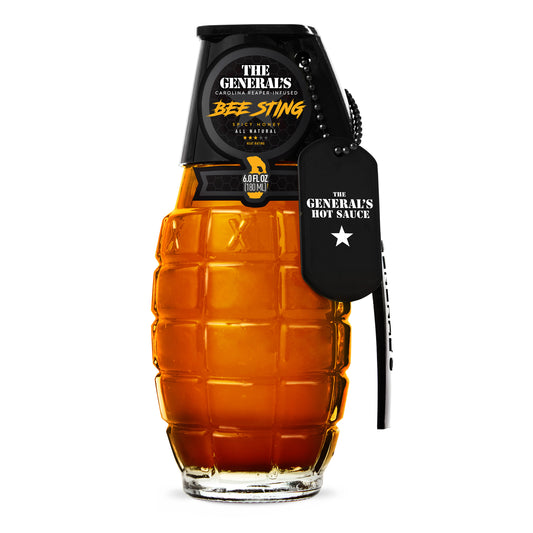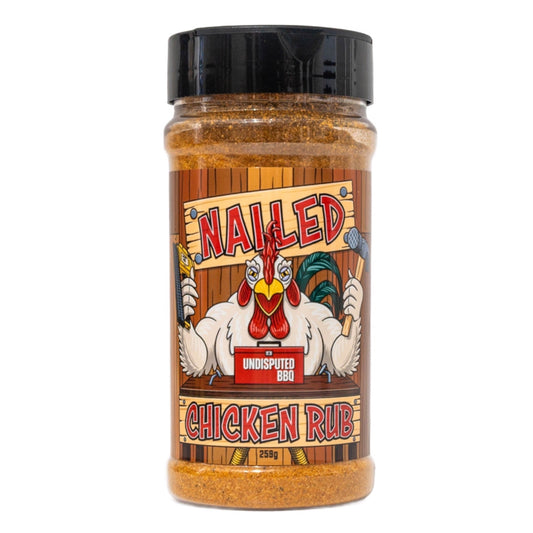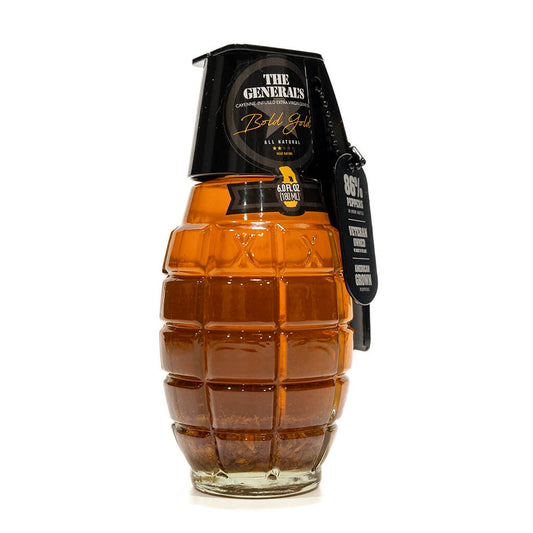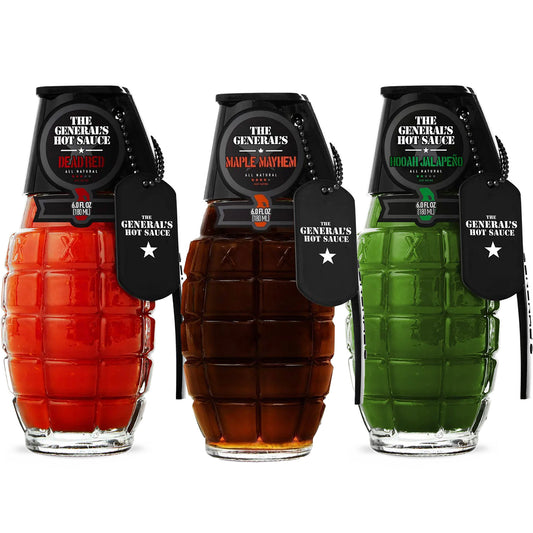Ah, BBQ ribs! Is there anything more quintessentially American than that? But let's be honest, what really makes or breaks this dish is the BBQ sauce. It's like the magic wand that turns Cinderella into a princess, only in this case, it turns good ribs into unforgettable ones.
But why is BBQ sauce so important? Well, it's the layer of flavour that adds complexity, depth, and that "wow" factor to your ribs.
It's the finishing touch, the cherry on top, the icing on the cake, if you will.
What Makes a Great BBQ Sauce?
So, what's the secret sauce behind the sauce? Is it the tang, the sweetness, or the smokiness? Well, it's a bit of everything, and we're about to dive deep into this saucy world. A great BBQ sauce is a harmonious blend of flavours that tickles your taste buds and leaves you craving for more. It's not just about one element; it's about how all the ingredients come together to create a symphony of flavours.
The History of BBQ Sauce
Origins
BBQ sauce isn't just a condiment; it's a piece of history. Originating from the Caribbean and refined in the American South, this sauce has been the soul of many BBQ dishes for centuries. The indigenous people of the Caribbean used a mixture of spices and acids to preserve and flavour their meat, which was later adapted and evolved by settlers and slaves in the American South.
Regional Variations
From the tangy vinegar-based sauces of North Carolina to the sweet and smoky flavours of Kansas City, BBQ sauce varies as much as the American landscape itself. Each region has its own unique take on BBQ sauce, influenced by the local ingredients and culinary traditions. For instance, in Texas, you'll find a more beef-centric sauce that's less sweet and more spicy, while in Alabama, you might come across a unique white BBQ sauce made with mayonnaise.
Types of BBQ Sauce
Tomato-Based
Think of this as the "classic" BBQ sauce. It's what you probably imagine when someone says "BBQ sauce": sweet, tangy, and a little smoky. This type of sauce is incredibly versatile and works well with almost any kind of meat. It's the "jack-of-all-trades" in the BBQ sauce world.
Vinegar-Based
If you're a fan of a more acidic, tangy kick, then vinegar-based sauces are your go-to. They're especially popular in the Carolinas, where pork is the meat of choice. The acidity of the vinegar cuts through the fattiness of the pork, creating a balanced and flavourful dish.
Our favourite: Blues Hog Tennessee Red
Mustard-Based
Love mustard? Then you'll adore mustard-based BBQ sauces. These are a South Carolina specialty and offer a tangy, spicy kick that's different from the usual sweet and smoky flavours. It's particularly good with pork but can also work well with chicken.
Our Favourite: Blues Hog Honey Mustard
Mayo-Based
Yes, mayo-based BBQ sauces exist, and they're creamy, rich, and delicious. They're not as common but definitely worth a try. This type of sauce is popular in Alabama and is often used with chicken. The creaminess of the mayonnaise complements the meat, adding a different texture and flavour profile.
Key Ingredients for BBQ Sauce
Sweeteners
Sugar, honey, or molasses? Each sweetener offers a unique flavour profile, so choose wisely. Sugar provides a clean sweetness, honey adds a floral note, and molasses brings in a rich, caramel-like flavour. Some people even use fruit preserves like apricot or peach to add both sweetness and fruitiness to their sauce.
Spices
From paprika to cayenne, spices add that extra zing to your sauce. But don't just stop at the usual suspects; experiment with less common spices like allspice, cloves, or even a touch of cinnamon to add complexity. Remember, spices are like the supporting actors in a movie; they may not be the stars, but they play a crucial role in making the film memorable.
Acids
Whether it's vinegar or lemon juice, acids balance out the sweetness and add complexity. They're the unsung heroes of the BBQ sauce world, providing that tangy kick that elevates the sauce from good to great. Different types of vinegar like apple cider, white, or even balsamic can add distinct flavours, so don't be afraid to experiment.
How to Choose the Right BBQ Sauce for Ribs
Flavour Profile
Consider the meat you're using and what flavours will complement it best. For instance, if you're cooking beef ribs, you might want a sauce that's less sweet and more spicy to complement the robust flavours of the beef. On the other hand, if you're cooking pork ribs, a sweeter, more tangy sauce might be a better fit.
Consistency
Too thick or too thin can ruin the final dish. Aim for a sauce that clings to the ribs but doesn't overpower them. A good BBQ sauce should coat the meat evenly, providing a nice glaze without making it soggy.
Pairing with Meat
Remember, the sauce should enhance, not mask, the flavour of the ribs. Think of it as a partnership where both the meat and the sauce bring their best qualities to the table. The sauce should provide that extra layer of flavour that makes the ribs truly unforgettable.
How to Apply BBQ Sauce to Ribs
Timing
When to apply the sauce is crucial. Too early and it can burn; too late and it won't adhere well. The best time to apply BBQ sauce is during the last 15-30 minutes of cooking. This allows the sauce to caramelize without burning, creating a nice, sticky glaze.
Techniques
Brushing, drizzling, or dunking? Each has its merits. Brushing allows for a more even application, drizzling can create a more rustic look, and dunking (literally dipping the ribs into a bowl of sauce) ensures that every nook and cranny is covered.
Common Mistakes to Avoid
Overpowering Flavours
Less is often more. Don't drown your ribs in sauce; let them shine. The sauce is meant to complement the meat, not overpower it. If you've spent hours smoking or grilling your ribs to perfection, the last thing you want is to mask all that hard work with an overly strong sauce.
Wrong Timing
Timing is everything. Apply the sauce at the wrong time, and you could end up with a culinary disaster. If you apply it too early, the sugar in the sauce can burn, creating a bitter taste. If you apply it too late, the sauce won't have time to caramelize and will end up looking and tasting more like a dip than a glaze.
Conclusion (Part 1)
Choosing the right BBQ sauce for ribs is an art as much as it is a science. Whether you're a fan of the classic tomato-based sauce or want to experiment with something new like a mayo-based one, the key is to find a balance that complements your ribs. So go ahead, get saucy and make your next BBQ ribs the talk of the town!
Advanced Tips for BBQ Sauce
Experiment with Global Flavours
Who says BBQ sauce has to be strictly American? Why not add some international flair to your sauce? For example, you could incorporate ingredients like soy sauce, ginger, and sesame oil for an Asian-inspired BBQ sauce. Or how about adding some chipotle peppers and lime juice for a Mexican twist? The possibilities are endless!
The Role of Umami
Umami, often referred to as the "fifth taste," can add a whole new dimension to your BBQ sauce. Ingredients like soy sauce, Worcestershire sauce, and even certain cheeses can add that elusive umami flavour, making your sauce even more irresistible.
The Importance of Texture
While the flavour is undoubtedly crucial, the texture of your BBQ sauce also plays a significant role. Some people prefer a smooth, ketchup-like consistency, while others like a chunkier sauce with bits of onion, garlic, or even fruit. The texture can add another layer of complexity to your ribs, so don't overlook it.
The Healthier Side of BBQ Sauce
Reducing Sugar
Traditional BBQ sauces can be quite high in sugar. If you're watching your sugar intake, consider using natural sweeteners like honey or maple syrup, which can add sweetness without the need for refined sugar.
Gluten-Free and Vegan Options
Yes, you can make a gluten-free and even vegan BBQ sauce! Simply ensure that all your ingredients are certified gluten-free or vegan, and you're good to go. For a vegan version, you can use tamari instead of Worcestershire sauce and opt for plant-based sweeteners.
Conclusion (Part 2)
Choosing the perfect BBQ sauce for your ribs can be a delightful culinary adventure. From the classic tomato-based sauces to exotic international twists, the world of BBQ sauce is as diverse as it is delicious. Whether you're a BBQ novice or a seasoned pitmaster, the right sauce can elevate your ribs from good to extraordinary. So go ahead, get creative, and most importantly, enjoy the delicious journey!
FAQs
-
Can I mix different types of BBQ sauces for my ribs?
- Absolutely, experimenting with various BBQ sauce combinations can create a unique and exciting flavor experience for your ribs.
-
What's the ideal cooking temperature for BBQ ribs?
- Maintaining a low and slow cooking temperature, usually around 225°F to 250°F (107°C to 121°C), is recommended for tender and flavorful BBQ ribs.
-
Is it better to apply BBQ sauce before or after cooking the ribs?
- It depends on your preference, but generally, applying BBQ sauce near the end of the cooking process is best to avoid burning and to achieve that perfect glaze.
-
What are some good sides to serve with BBQ ribs?
- Classic sides for BBQ ribs include coleslaw, baked beans, and cornbread, but you can also get creative with your choices to suit your taste.
-
Can I use the same BBQ sauce for ribs on other cuts of meat like pork chops or brisket?
- Yes, BBQ sauce is versatile and can enhance the flavor of various meats, including pork chops, brisket, and even grilled chicken or turkey.




